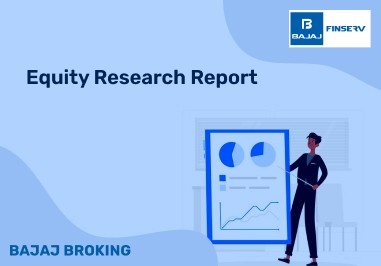Spread betting is a unique way to trade in the financial markets. It allows traders to speculate on the price movements of various assets, like currencies, stocks, commodities, or indices, without actually owning them. It is particularly popular in countries like the UK, where profits from spread betting are exempt from capital gains tax. While it hasn’t gained as much traction in India due to regulatory restrictions, understanding spread betting can be highly valuable for Indian investors exploring international markets.
What is Spread Betting?
At its core, spread betting involves placing a “bet” on whether the price of an asset will rise or fall. Instead of buying or selling the actual asset, you trade on the price spread, i.e., the difference between the bid (sell) and ask (buy) price.
For Indian traders who are exploring global platforms, spread betting provides a great opportunity to access the markets 24/7, trade on short-term movements, and diversify their investments. However, it demands deep knowledge, highly disciplined risk management, and a thorough understanding of its features compared to traditional trading methods. Let’s discuss what is spread betting in detail!
Key Features of Spread Betting
Spread betting is a slightly different way of trading that allows flexibility and accessibility for traders, especially in the stock market. Below are some of the key features that make it stand out in the financial markets:
Tax-Free Profits (in Some Countries): Spread betting gains are exempt from capital gains tax in regions like the UK. This makes it attractive for traders looking to level up their earnings.
Speculation on Price Movements: You can bet on both upward and downward price trends without actually owning the actual asset.
Customisable Trade Sizes: Traders can easily adjust their stake size based on their risk appetite and strategy. This makes it quite beginner-friendly, especially for those who are betting started with the stock market.
Diverse Market Access: This is an excellent example of trading across global commodities, indices, forex, cryptocurrencies, and more, right from a single platform.
No Ownership of Assets: You only speculate on price movements. This eliminates the need and hassle for physical storage or transfer of assets.
Built-In Risk Management Tools: Features like stop-loss and limit orders help traders minimise the potential losses and lock in their profits in the stock market.
Bid-Ask Spread: Brokers earn through the spread (difference between buy and sell prices), thereby eliminating all additional commissions.
24/7 Market Accessibility: Many platforms allow trading beyond the standard market hours. This clearly provides flexibility for global traders.
Short and Long Trades: Spread betting allows profit potential from both rising and falling markets.
Additional Read: What are the Features of Derivatives Market
How Spread Betting Works?
Spread betting is based on predicting the direction of an asset’s price movement. Here’s a simplified breakdown of how it works:
Understanding the Spread: It all begins with this. The spread is the difference between the “bid” price (what you sell at) and the “ask” price (what you buy at). Brokers set this spread, and it represents their profit.
Placing a Bet: When you open a trade, you predict whether the price of an asset will go up or down. If you think the price will rise, you “go long” (buy). If you think it will fall, you “go short” (sell).
Staking Your Bet: At this point, you decide how much you want to bet per point of price movement. For example, if you bet ₹100 per point on a stock index, and it moves 10 points in your favor, you earn ₹1000.
Leverage Increases Gains (and Losses): Spread betting uses leverage. This means, it allows you to control a large position with a small margin. However, while this does level-up potential returns, it also increases the risk of significant losses.
Profit and Loss Calculation: Your profit or loss depends on the number of points the price moves relative to your stake and the direction of your bet.
Closing the Trade: To exit, you close the position by reversing the bet (buying or selling). Your final profit or loss is determined at this point.
For example: If gold’s price is ₹5,000 (bid) - ₹5,010 (ask), and you predict it will rise, you place a “buy” bet at ₹5,010. If gold rises to ₹5,050, your profit is the price movement (40 points) multiplied by your stake per point. If your stake is ₹100 per point, your profit is ₹4,000. Similarly, if the price drops to ₹4,990, your loss would be ₹2,000 (20 points × ₹100).
Conversely, if you think the price will fall, you “sell” at ₹5,000. If gold drops to ₹4,950, you earn ₹5,000 (50 points × ₹100). However, if it rises to ₹5,020, you lose ₹2,000. The outcome depends entirely on your prediction and market movement.
Verdict: Spread betting is versatile and profitable. However, due to leverage, it requires constant and careful monitoring to avoid significant losses.
Advantages and Disadvantages of Spread Betting
Understanding these pros and cons is super essential for anyone considering spread betting to weigh its potential benefits against the risks involved.
Advantages of Spread Betting
Tax and Cost-Efficiency: Unlike traditional trading, spread betting has very minimal upfront costs because you only pay the spread and don’t need to own the underlying asset. In fact, in certain regions, profits from spread betting are free from capital gains tax, thereby making it more cost-efficient.
Access to Global Markets: This is one of the best advantages. As a trader, you can speculate on global indices, forex, commodities, and equities right from one platform, thereby creating diversification.
Flexibility in Trade Sizes: Spread betting allows you to adjust your stake per point. This makes it suitable for both small-scale and large-scale traders.
Real-Time Trading: Transactions are executed instantly. You can react quickly to market movements without any unnecessary delays like those in traditional investments.
Extended Trading Hours: Many platforms offer trading outside of regular market hours. This gives you the advantage of responding to global events quicker.
Disadvantages of Spread Betting
High Risk Due to Leverage: Just as leverage increases profits, it also magnifies the losses. This can make spread betting quite risky for inexperienced traders.
No Asset Ownership Benefits: Unlike traditional investments, you don’t benefit from dividends, voting rights, or any ownership-related perks.
Complex for Beginners: Spread betting involves understanding complicated concepts like bid-ask spreads, leverage, and margin, which can overwhelm new traders.
Market Dependency: Volatility and unpredictable price movements can lead to significant losses, especially without proper risk management.
Risks Involved in Spread Betting
Understanding the risks and implementing the necessary risk management strategies are important for minimising losses in spread betting. But first, some of the risks involve:
Market Volatility: Spread betting is highly sensitive to market fluctuations. Sudden price swings can cause huge losses, especially in volatile markets.
Risk of Overleveraging: New traders may take on excessive positions without fully understanding the financial implications. This can lead to a significant debt.
Margin Calls: If your account balance falls below the required margin level, your broker may issue a margin call, thereby forcing you to deposit additional funds or close your positions.
Platform-Specific Risks: Spread betting platforms differ in terms of reliability, and issues like poor execution speeds, downtime, or hidden fees. All of this can negatively affect trades.
Regulatory and Legal Risks: Spread betting regulations differ across countries. In India, for example, spread betting is largely unregulated, and this makes it riskier for traders.
Potential for Addiction: The ease of placing bets and the thrill of quick gains can create addictive behavior. This may also lead to repeated losses or emotional trading.
Additional Read: What is Margin Call and Why It Is Important
How to Get Started with Spread Betting
Getting started with spread betting requires immense patience, discipline, and consistent learning. Here’s a step-by-step guide to help you begin:
Educate Yourself Thoroughly
This is a non negotiable. Before starting, understand the basics of what is spread betting, including leverage, margin requirements, and the markets you want to trade. Try taking online courses, read books, and use demo accounts to gain confidence.
Always Choose a Reliable Platform
Go with a regulated, reliable, and reputable spread betting platform with user-friendly tools, real-time data, and transparent fee structures. Make sure it provides access to the markets you are interested in.
Open an Account
Register with your chosen platform by providing identification and financial details. Most platforms will also require you to pass a knowledge test to ensure you are aware and understand the risks involved.
Start Small with a Demo Account
Before jumping into the stock market, it is advisable to practice with demo accounts. Hence, use a demo account to practice trading strategies in real-time without risking real money. This will help you familiarise yourself with the platform as well as refine your skills.
Research, Analyse, and Plan Your Trades
Study market trends, news, and go through the technical analysis to identify trading opportunities. Set a clear trading plan with well-defined entry and exit points, risk levels, and profit targets.
Define Your Stake and Leverage
Determine how much to bet per point. Additionally, choose the leverage ratio carefully to manage your exposure to risk effectively.
Set Stop-Loss Orders
Protect your capital by setting stop-loss orders to limit potential losses in volatile market conditions.
Monitor and Adjust Constantly
Keep a close eye on your trades and adjust your strategy based on market performance and the constantly changing conditions. Avoid making emotional decisions at all costs.
Start Trading
Begin with small trades to gain experience and confidence before scaling up your stakes. Also, do not skip on reviewing your trades later in the stock market. This is to learn from the successes and mistakes you are making.
Spread Betting vs. Traditional Trading
While both these approaches have their advantages and challenges, choosing between them depends on your risk tolerance, trading goals, and financial knowledge.
Spread betting is more ideal for those who want to speculate with lower capital but are comfortable with higher risks, while traditional trading is better for individuals who prefer owning assets with relatively stable and predictable outcomes. Here’s a tabular distinction between the two:
Aspect
| Spread Betting
| Traditional Trading
|
Leverage
| Higher leverage. It allows gaining control of larger positions with less capital.
| Lower leverage. It requires you to have more capital to control the same amount of assets.
|
Costs
| No commissions are required but include spreads and potential overnight financing fees.
| Commissions, transaction fees, and capital gains taxes apply.
|
Flexibility and Market Trends
| More flexible. You can gain profit from both rising and falling markets.
| Less flexible. Usually, profits come from rising markets here.
|
Time Horizon
| Suitable for short-term speculation.
| Suitable for both short-term and long-term.
|
Dividend Benefits
| Not entitled to dividends.
| Eligible for dividends from held securities.
|
Taxation
| It is often tax-free (depending on the Jurisdiction, but in India it is unregulated).
| Capital gains tax applies to profits made from asset sales.
|
Market Access
| Access to a wider range of markets (forex, commodities, indices).
| Primarily limited to specific assets like stocks and bonds.
|
Risk Management
| Higher risk due to leverage. It may require more active stop-loss management.
| Generally lower risk, as you own the asset and are not as exposed to any margin calls.
|
Capital Requirement
| Requires less capital to open positions due to higher leverage.
| Requires more capital for trading as you need to buy the actual assets.
|
Conclusion
Spread betting is indeed an exciting financial tool that comes with unique benefits. However, the high leverage that makes spread betting attractive also indicates an increase in losses, thereby making calculated trading strategies and risk management essential. It is not just beneficial for experts but also a solid opportunity for new investors who are willing to test their skills and strategies, especially on global platforms.
As with any trading approach, the key lies in education, preparation, and execution. All in all, spread betting can offer new opportunities to profit if used wisely and strategically.













